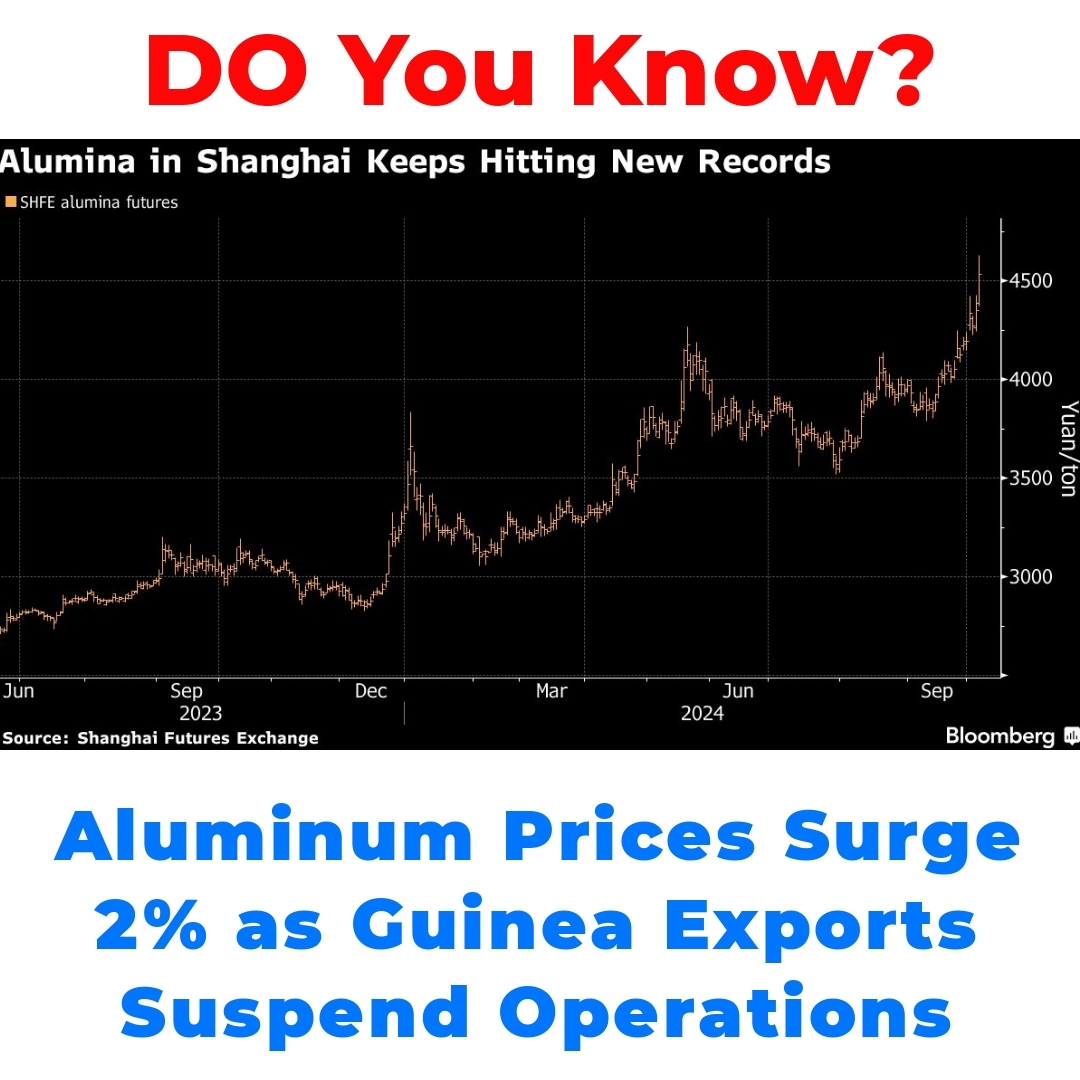Aluminum prices have recently seen a significant spike, largely influenced by the suspension of exports from Guinea, a key supplier of mined ore. Understanding the dynamics of the aluminum market and the supply chain is essential, especially as geopolitical events continue to shape commodity prices and trading activities, particularly in the London Metal Exchange.


Aluminum prices have surged significantly in recent weeks, marking a pivotal moment for the global aluminum market. One of the major factors driving this increase is the suspension of exports from Guinea, a critical supplier of mined ore necessary for aluminum production. Understanding the dynamics of the aluminum market and the supply chain is essential today, especially as events like these can have widespread implications for commodity prices and trading activities.
Understanding Aluminum Prices
Aluminum prices are a key indicator in the global commodity market. They reflect not only the costs associated with producing aluminum but also the demand from various industries, including construction, automotive, and packaging. Several factors typically influence these prices:
- Demand fluctuations across industries
- Production costs, including energy and labor
- Geopolitical events that can disrupt supply chains
Recent Developments in the Aluminum Market
Aluminum Prices Jump More Than 2% in London
Recently, aluminum prices in London have jumped more than 2%, a substantial increase that follows the export suspension from Guinea. This sudden rise has caught the attention of traders on the London Metal Exchange, where prices are determined by market forces and trading activities. The impact of the Guinea situation is palpable, as it serves as a crucial link in the global aluminum supply chain.
The Role of Guinea in the Aluminum Supply Chain
Importance of Guinea Exports
Guinea plays a vital role in the aluminum supply chain by providing a significant portion of the mined ore used in aluminum production. Exports from Guinea contribute to the availability of bauxite, which is essential in creating aluminum. With the recent suspension of Guinea exports, the flow of this critical resource has been compromised, leading to increased aluminum prices across various markets.
Reasons for Aluminum Price Increase in London
Impact of Export Suspension
The export suspension from Guinea has had a direct and immediate effect on aluminum prices in London. With a reduction in the supply of mined ore, producers face challenges in fulfilling their production needs. This scarcity not only drives up prices but also creates potential ripple effects for other markets and sectors reliant on aluminum, such as automotive production and construction projects.
How Supplier Issues Affect the Aluminum Market
Understanding how supplier issues affect the aluminum market can provide valuable insights into price dynamics. When suppliers face disruptions, whether from political instability, natural disasters, or export suspensions, the ripple effects can be felt throughout the entire supply chain. This disruption can lead to price volatility, impacting producers and consumers alike, and this scenario is currently playing out in the global aluminum market.
Metal Market Trends and Future Predictions
Future Predictions for Aluminum Prices After Export Suspension
Looking ahead, the future predictions for aluminum prices are shaped by numerous factors, including the ongoing export suspension from Guinea. Analysts predict that if the suspension continues, we may see further price increases, making aluminum a more expensive commodity in the coming months. Market observers are closely monitoring these developments to understand how long this situation might last and its potential implications for the aluminum supply chain.
Conclusion
In summary, aluminum prices have recently surged due to the suspension of exports from Guinea, a key supplier of mined ore. The nuances of the aluminum market and supply chain can significantly impact commodity prices. As we continue to monitor the situation, it’s essential to understand how global events can shape our economy and trading activities in the aluminum sector. Keeping an eye on aluminum prices and market dynamics will be crucial for anyone involved in industries reliant on this vital metal.
Frequently Asked Questions
1. Why have aluminum prices increased recently?
Aluminum prices have surged due to the suspension of exports from Guinea, a major supplier of bauxite, which is essential for aluminum production.
2. What role does Guinea play in the aluminum market?
Guinea is crucial in the aluminum supply chain as it provides a significant portion of the mined ore needed for aluminum production. The halt in exports has resulted in a scarcity of this resource, driving prices up.
3. How do supply chain issues impact aluminum prices?
When suppliers face disruptions like export suspensions, it can lead to price volatility. Decreased supply means higher costs for producers, which often translates to increased prices for consumers as well.
4. What are some factors that influence aluminum prices?
- Demand fluctuations across different industries
- Production costs, including energy and labor
- Geopolitical events that can disrupt supply chains
5. What can we expect for aluminum prices in the future?
If the export suspension from Guinea continues, analysts predict further increases in aluminum prices, affecting various sectors that depend on this metal.






